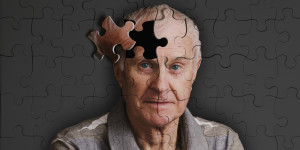Anyone who has ever been given a cancer diagnosis knows that it quickly becomes one of  the biggest concerns on your mind. Thinking about treatment, outcomes, side effects and quality of life after diagnosis become the main focus of your thoughts. Surprisingly though, one of the most overlooked, underreported and yet prevalent, side effect of cancer treatment is hearing loss. Three of the most widely utilized cancer agents are carboplatin, cisplatin and mechlorethamin; they do wonders for eradicating cancer cells, however they are severely ototoxic.
the biggest concerns on your mind. Thinking about treatment, outcomes, side effects and quality of life after diagnosis become the main focus of your thoughts. Surprisingly though, one of the most overlooked, underreported and yet prevalent, side effect of cancer treatment is hearing loss. Three of the most widely utilized cancer agents are carboplatin, cisplatin and mechlorethamin; they do wonders for eradicating cancer cells, however they are severely ototoxic.
All three of these cancer agents have been proven to cause hearing loss, tinnitus and/or dizziness during treatment and even in the years after treatment. The sad part is that the damage is oftentimes irreversible, but if hearing loss is caught early on in the treatment process, there are intervention measures that can be taken to limit or prevent further damage. This is why many doctors are recommending that cancer patients obtain a baseline audiogram before starting any sort of chemotherapy and frequently monitor their hearing acuity throughout the treatment process.
If you are already undergoing chemotherapy treatment, and think you are suffering hearing loss, the Cleveland Clinic recommends the following guidelines for when to call your doctor or health care provider:
- If you develop any sudden severe ear pain
- If you have a temperature greater than 100.5 F (38 C)
- If you experience vomiting more than 4-5 times in a 24 hour period
- If you have a sudden loss of vision, or if you lose your hearing
- If you fall down or lose consciousness as a result of dizziness or hearing loss
- Severe uncontrolled nausea and vomiting, unrelieved by anti-nausea medications
- If your symptoms worsen within 3 days of treatment
- As always, notify your doctor or healthcare provider if you are concerned about any of the symptoms you are experiencing.
If you are currently undergoing cancer treatment or even if you are a cancer survivor, it is certainly recommended that you visit at audiologist to schedule an exam. There are several options to help you deal with ototoxic complications; even if you aren’t experiencing any hearing concerns at this time, knowing the status of your hearing health today can help protect it for the future.


 Just recently, we had an older gentleman come in to our
Just recently, we had an older gentleman come in to our 
 the majority of them focus on turning down the noise, wearing
the majority of them focus on turning down the noise, wearing 